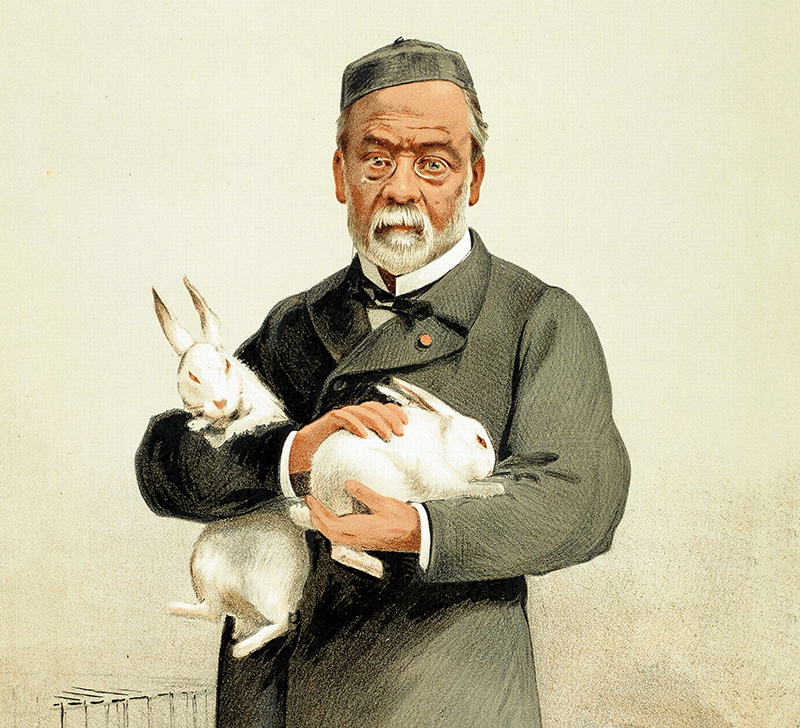Category: The Hell?
-

I discovered how to earn up to $180,000 per year by pooping – New York Post
Why do they offer such a massive sum for excrement? The site explains: “It is a major problem that the vast majority of people in modern society are in poor health and have damaged gut microbiome.” To help maintain people’s fecal-librium, Human Microbes is trying to find “people who are healthy enough to be high-quality…
-

Why it’s time to talk about poo – BBC
Why hasn’t every building and municipality switched to such smart tech? One barrier is money – sustainable technologies (especially new ones) require funding, and municipalities, which rely on taxpayer dollars, have limited budgets. Another challenge is the still-remaining taboo around the topic – many people just don’t love talking about sewage. And there are some…
-

Everybody poops, but not everybody’s poop gets spontaneously combusted under water – Fast Company
“Stated very simply, we’re taking infrastructure and we’re turning it into an appliance,” Yee says. “So, no water coming into the toilet and no output sewage. . . . You just plug it in wherever you need a bathroom and it treats your waste.” The design is similar to an espresso machine, Yee says, and…
-

Turning manure into gold: The excrement economy – USA Today
Behold the new black gold. Dark and warm, it oozes water and teems with beneficial properties. It even harbors precious metals. And boy does it stink. Call it the excrement economy. Between the rise of fecal transplants and water strained from latrine sludge, the poop market is hot. Besides removing toxic waste, the commodification of…
-

Solid Gold: Poop Could Yield Precious Metals – Live Science
It’s not just gold that could be mined and sold. Waste contains elements like vanadium and copper that could be used in devices such as cellphones and computers, the researchers said. The economic value of poop mining is still unclear, but some recent projections have been promising. Earlier this year, another group of researchers published…
-

Americans poop up to $4.2B in precious metals every year – New York Post
Poop could be a gold mine — and that’s no load of crap! You could be flushing a fortune in feces down the toilet in the form of tiny nuggets of gold and other precious metals that could be mined, according to research presented Monday at the national meeting of the American Chemical Society. “If you…
-

Sewage sludge could contain millions of dollars worth of gold – Science
If the holy grail of medieval alchemists was turning lead into gold, how much more magical would it be to draw gold from, well, poop?…In a new study, scientists at Arizona State University (ASU), Tempe, quantified the different metals in sewage sludge and estimated what it all might be worth. They took sludge samples gathered…
-

Gold in faeces ‘worth millions’ – BBC
US researchers are investigating ways to extract the gold and precious metals from human faeces..Details were outlined at the 249th national meeting of the American Chemical Society (ACS) in Denver…The team estimates that seven million tonnes of solid waste come out of US wastewater facilities each year. About half of that is used as fertiliser…
-

How Poop Can Be Worth $9.5 Billion
According to a smart study by a United Nations think tank on water, environment and health, there may be a simple—and profitable—solution: turn human waste from a disposal problem to an energy resource. Human feces ranges from 55% to 75% water. Much of the 25% to 45% that remains consists of gaseous methane—produced by bacterial breakdown—and a…
-

Stinking Rich? Human Waste Contains Gold, Research Finds – Time
Deploying an electron microscope, Dr. Kathleen Smith and her team spent eight years unearthing minuscule metal particles in treated solid waste. “The gold we found was at the level of a minimal mineral deposit,” Smith said, meaning that a similar dispersion in rock would be profitable enough for traditional mining. Other metals recovered include silver…
-

Your poop could be a literal goldmine of precious metals – Washington Post
You may know that you can earn $13,000 a year selling your own feces, but now it seems that the U.S. government stands to make bank on your solid waste, as well. According to new research presented at the national meeting of the American Chemical Society, the itty-bitty particles of gold, lead, copper and other valuable metals…
-

Karl Landsteiner – discovered poliovirus, the rhesus factor, described as the father of transfusion medicine
Karl Landsteiner ForMemRS (14 June 1868 – 26 June 1943) was an Austrian-born American biologist, physician, and immunologist. He distinguished the main blood groups in 1900, having developed the modern system of classification of blood groups from his identification of the presence of agglutinins in the blood, and in 1937 identified, with Alexander S. Wiener, the Rhesus factor, thus enabling physicians to transfuse blood without endangering the patient’s…
-

Rosolio (from around the internets)
Rosolio is a type of Italian liqueur made from a base of alcohol, sugar, and water in the same proportion, which is flavored by adding an essence of any of various types. Despite a common misconception based on the name, rosolio has no direct connection with roses or rose petals. (Rose essence is, however, one option for addition to the base; other options…
-

Cochineal Etymology
cochineal (n.) “brilliant crimson dyestuff consisting of the dried bodies of a species of insect,” 1580s, from French cochenille (16c.), probably from Spanish cochinilla, from a diminutive of Latin coccinus (adj.) “scarlet-colored,” from coccum “berry (actually an insect) yielding scarlet dye” (see kermes). But some sources identify the Spanish source word as cochinilla “wood louse” (a diminutive form related to French cochon “pig”). The insect (Coccus Cacti) was…
-

Surfeit
surfeit (n.) early 14c., “excess quantity;” late 14c., “overindulgence,” from Old French sorfet “excess; arrogance” (Modern French surfait), noun use of past participle of surfaire “overdo,” from sur- “over” (see sur- (1)) + faire “do,” from Latin facere “to make, do” (from PIE root *dhe- “to set, put”). surfeit (v.) late 14c., intransitive, “indulge or feed to excess,” from surfeit (n.). Related: Surfeited; surfeiting. Transitive sense from 1590s. Entries linking to surfeit sur- (1) word-forming element meaning “over,…
-

Nepenthesin (and the carnivorous plants it comes from)
Nepenthesin (also spelled nepenthacin or nepenthasin) is an aspartic protease of plant origin that has so far been identified in the pitcher secretions of Nepenthes and in the leaves of Drosera peltata. Discovery In the late 19th century, Sydney Howard Vines showed that the pitcher fluid from Nepenthes could digest protein in acidic conditions. He suggested the plants were making a digestive enzyme, for which he proposed the name “nepenthin”. In…
Recent Posts
- 🧬 Disease Table with Low Sodium Connection
- 🧂 Sodium Reduction and Sodium Replacement: A History of Reformulation and Exploding Diseases, Including Many Diseases Unheard of Before Deadly Sodium Policies
- 🧂 The DEADLY 1500 mg Sodium Recommendation predates the WHO’s formal global sodium reduction push by nearly a decade (and it’s even worse than that)
- 🧬 What Is Beta-Glucuronidase?
- When Sugar Was Salt: Crystalline Confusion and the Covenant of Sweetness
Tags
ADAM ASPARTAME Birds Blood Bones Brain Bugs Cancer Columba Cows crystallography Death Death cults Eggs Etymology Gastrin Gold Growth hormone History Hormones Insulin Liver Mere Perplexity Metal Monkey Business Mythology Paracetamol Plants Poison Pregnancy Protein Religion Reproduction Rocks Salt Slavery Snakes Sodium the birds and the bees Thiocyanate Tobacco Tylenol Underworld Venom zinc
